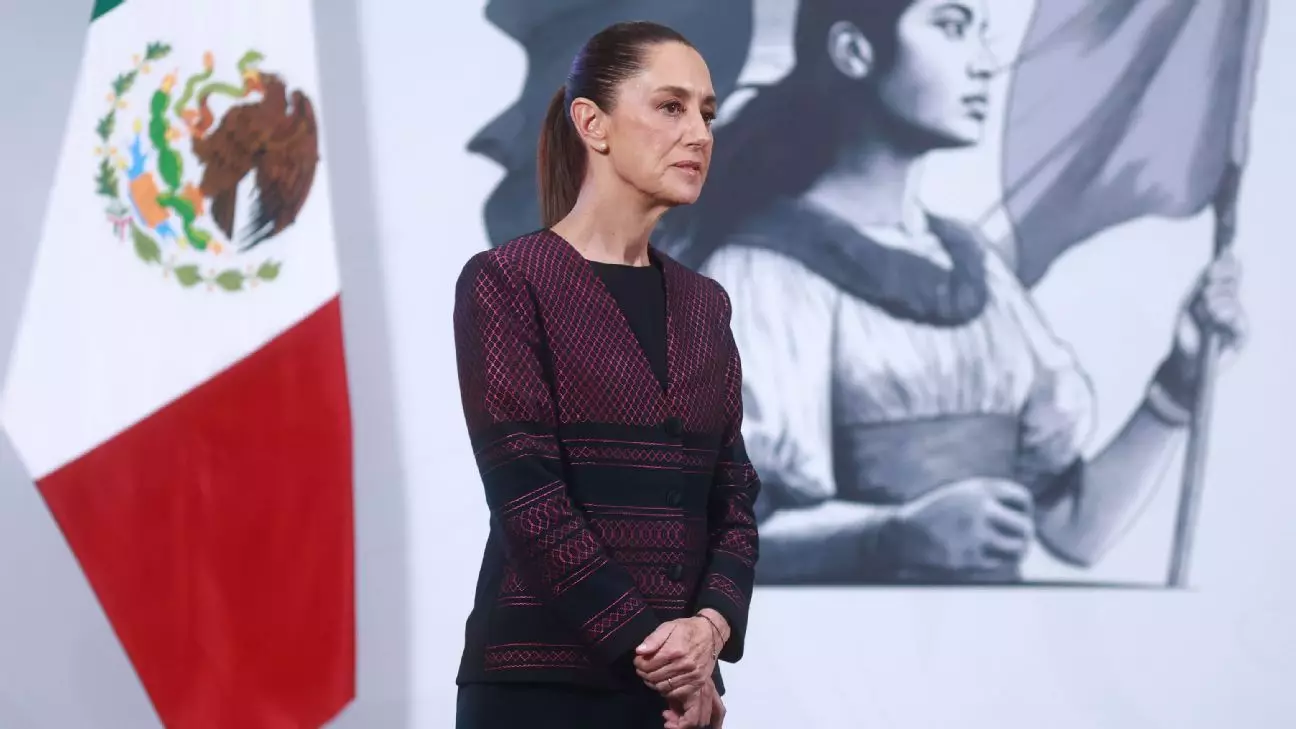Amidst the vibrant atmosphere that surrounds a major sporting event, tensions run high as political sentiments increasingly intrude upon the arena of fan celebration. The uproar ignited by Mexican President Claudia Sheinbaum’s fervent plea to U.S. authorities for restraint in immigration enforcement poignantly highlights the precarious balance between national security and community rights. This intrusion into an otherwise jubilant event, the Gold Cup soccer match in Los Angeles, underscores a troubling reality: how swiftly the joys of sport can be overshadowed by the ghosts of oppressive policies from previous administrations.
Recollections of Injustice
In a revealing moment, Sheinbaum reminded the United States of the divisive legacy left by past immigration enforcement strategies, particularly those aligned with Donald Trump’s administration. The recent raids targeting undocumented migrants serve as grim reminders of discrimination cloaked under the guise of national security. Such measures stir protests and outcries, as they threaten to propel immigrant communities into the shadows just when they should feel the warmth of inclusion. The integration of such heavy-handed tactics into sports events not only amplifies the stakes but actively dismantles the fabric of unity that sports strive to promote.
Soccer as a Stage for Dissent
The clash between soccer fans and immigration enforcement sleuths transforms what should be a healthy rivalry on the field into a battlefield of ideologies. Sheinbaum’s comments reveal a keen awareness of the emotional toll on fans. Questions surrounding whether attendees should feel free to partake in the celebration or must consider potential repercussions highlight the omnipresent fear faced by immigrant families. The statistics around migrant populations in the U.S. illustrate that the majority are hardworking and contribute positively to society. It is this worthiness that should forge a path toward inclusion rather than exclusion.
The Role of Government in Community Events
U.S. Customs and Border Protection’s approach to securing sports events—including the bizarre unsolicited proclamation that they would be “suited and booted” at the games—merely heightens anxiety. Such statements make clear how authorities can transform a fanfare of soccer into a climate of intimidation. While the agency claims these security measures are routine, their timing coincides ominously with rising tensions and deep-rooted fears within immigrant communities.
Cultural Solidarity in the Face of Adversity
The images of demonstrators waving Mexican flags across social media platforms reflect a resilient resistance to oppression. In asserting that “Mexico will always promote peace,” Sheinbaum provides a counter-narrative to the fearmongering tactics employed by immigration authorities. As this tournament showcases not just Mexican talent but also represents Central American migrants, it reveals the strength that lies in cultural solidarity amid adversity. The call for unity should not merely echo in stadiums but resonate in the hearts of those who believe in a more just society.
In a climate where integration is painted as a crime, the Gold Cup stands as both a celebration and a plea for recognition. It is a stark reminder that the passions ignited by sports form a bridge to greater discussions about identity, community, and justice—central pillars that must be fiercely protected and promoted at every level of interaction, from the field to the halls of power.

